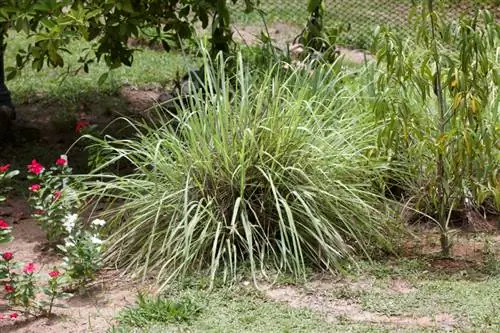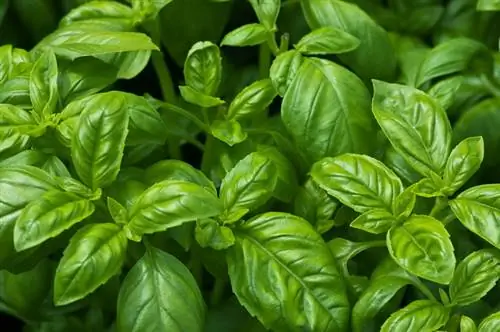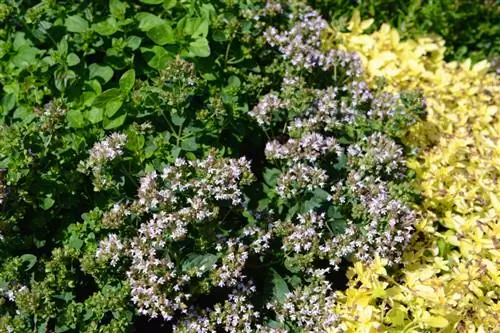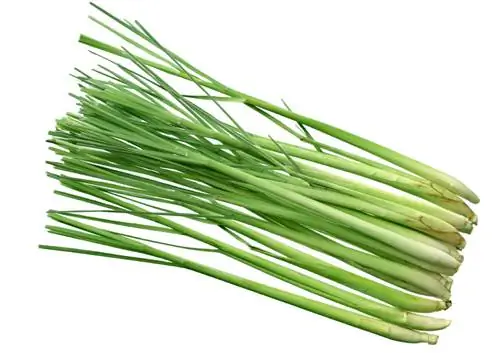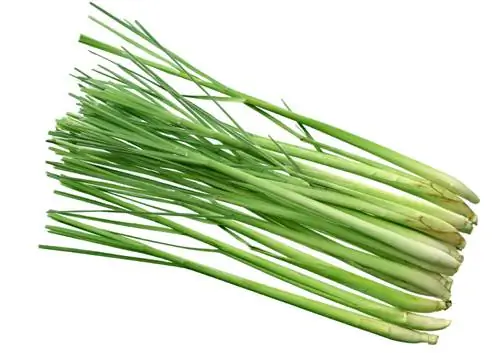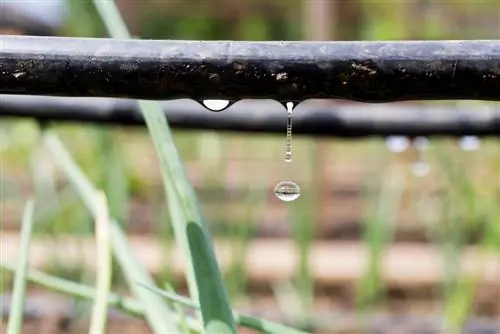- Author admin [email protected].
- Public 2023-12-16 16:46.
- Last modified 2025-01-23 11:20.
Lemongrass (Cymbogon citratus) is a popular spice that gives many Asian-inspired dishes and drinks a slightly lemony, aromatic note. The plant forms sturdy stalks and is relatively easy to care for, as long as you take its tropical requirements for warmth and winter protection into account.
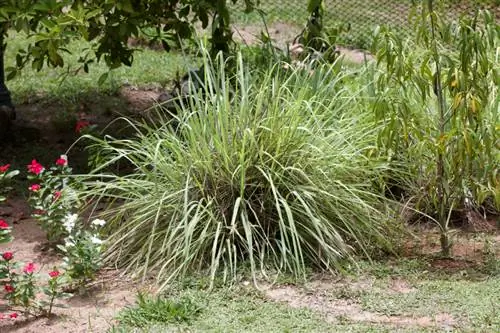
How do I care for lemongrass optimally?
Lemongrass requires regular watering, moderate fertilization and a warm, bright location during the growth phase. In winter it should be kept frost-free. Pests such as fungus gnats can be controlled through adjusted irrigation or yellow panels.
Water requirements
Water the lemongrass about two to three times a week during the summer months, depending on the weather. You should definitely let the soil dry out between each watering. Lemongrass tolerates short dry periods better than waterlogging, which quickly leads to root rot.
Fertilize moderately
You should only fertilize lemongrass during the growth phase from April to September. Organic vegetable or herbal fertilizers are best suited (€23.00 on Amazon), as their nutrient composition is optimally tailored to the needs of the plant.
Cutting and Harvesting
You can carefully separate one of the onion-like thickenings from the clump throughout the year and use it fresh in the kitchen.
Put lemongrass outdoors or repot it
The best time to plant lemongrass is spring. You can plant the spice directly outdoors until autumn. If you would like to cultivate lemongrass on the balcony or terrace, now is the right time to put it in a larger planter. Lemongrass prefers a slightly acidic substrate. Conventional potting soil, which you loosen up with a little sand, is well suited. To avoid waterlogging, it is recommended to add a drainage layer of gravel or expanded clay both in the garden and in the planter.
This is how the spice survives the winter
Lemon grass is not frost hardy and is not allowed to overwinter outdoors in our latitudes. As the nights get colder, the spice should be moved into the house. A bright, warm place with temperatures between 20 and 22 degrees is well suited for overwintering. Ensure sufficient humidity.
Pest Control
Small mosquitoes that fly up while watering indicate an infestation with fungus gnats. While the adults pose no danger to the plant, the larvae can weaken the lemongrass.
They cause:
- Visible feeding damage
- Growth disorders
- Cripples on the stalks
Since the fungus gnat only lays its eggs in very moist soil, you should not keep the substrate too wet. Always water the spice in the pot from below. Alternatively, you can combat fungus gnats using yellow panels.
Tips & Tricks
Lemongrass has very hard and sharp leaf edges. Please exercise caution when caring for the spice plant as you could get cuts on the edges of the leaves.

